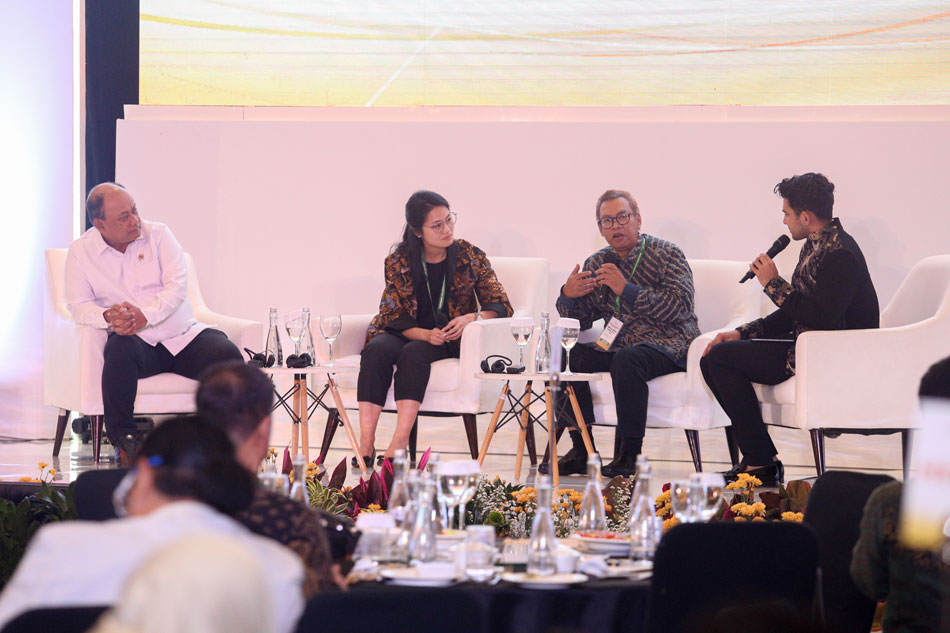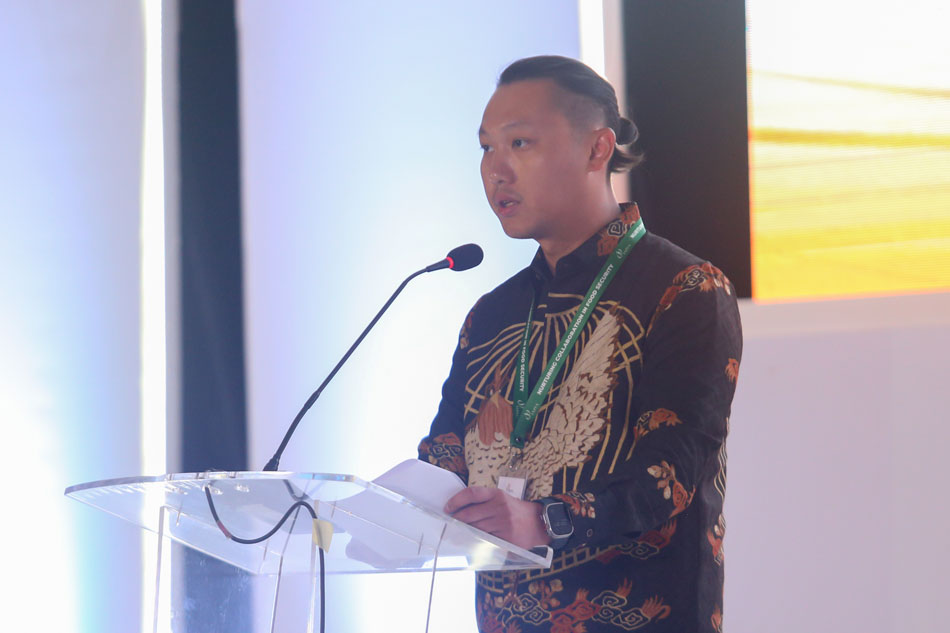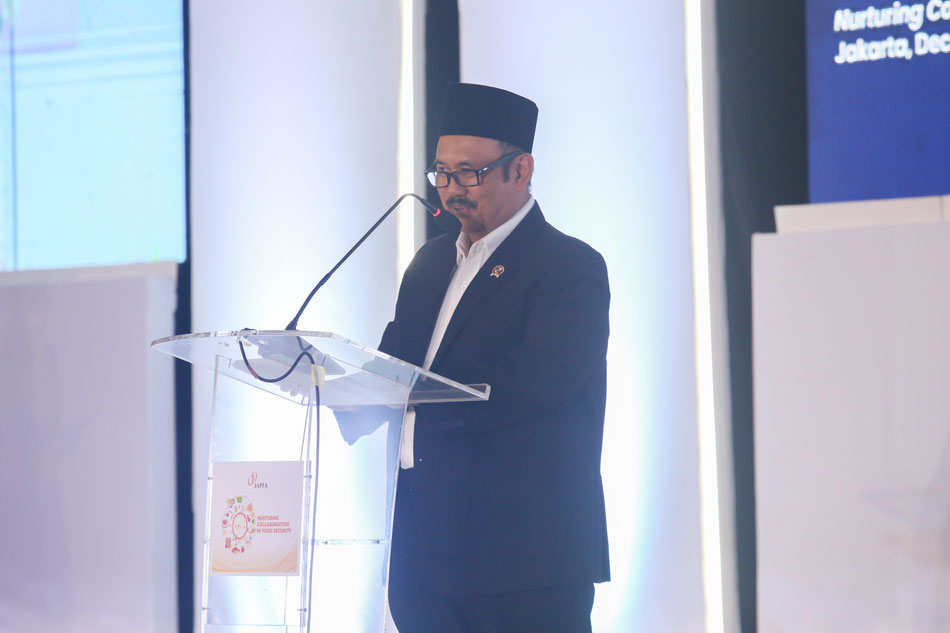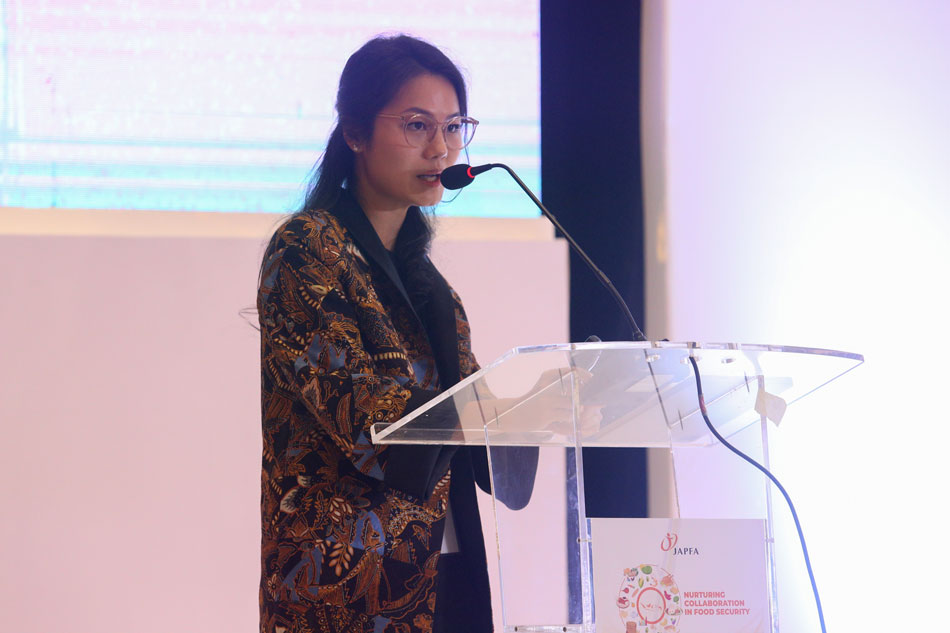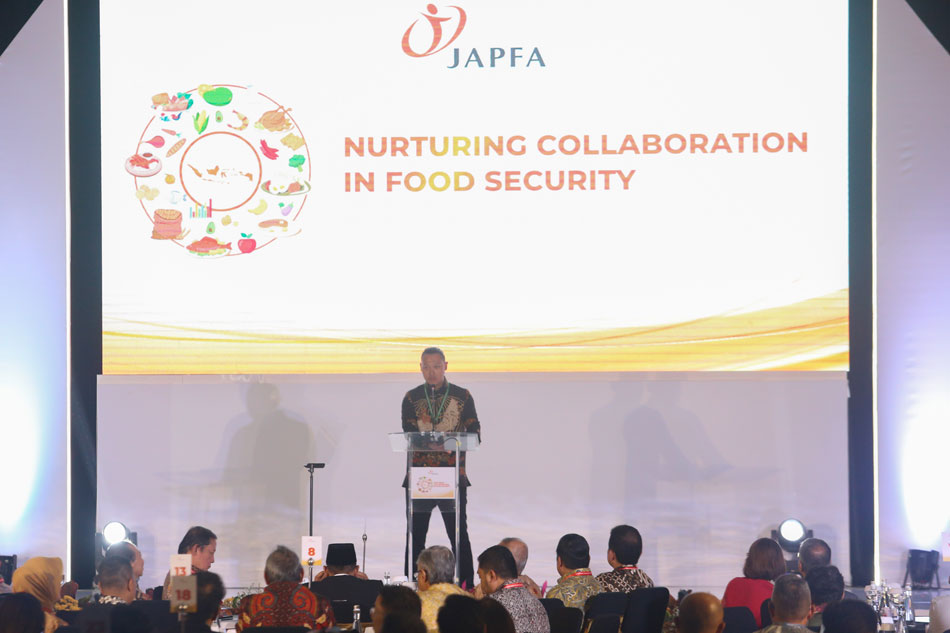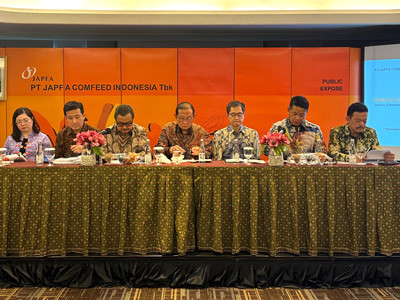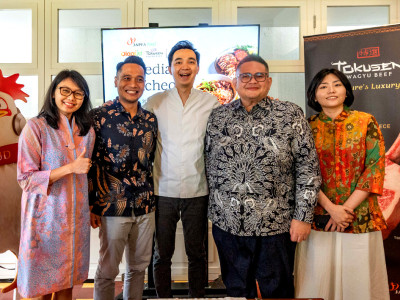Japfa Supports Indonesia’s Efforts to Achieve Food Security and Sustainable Economic Growth
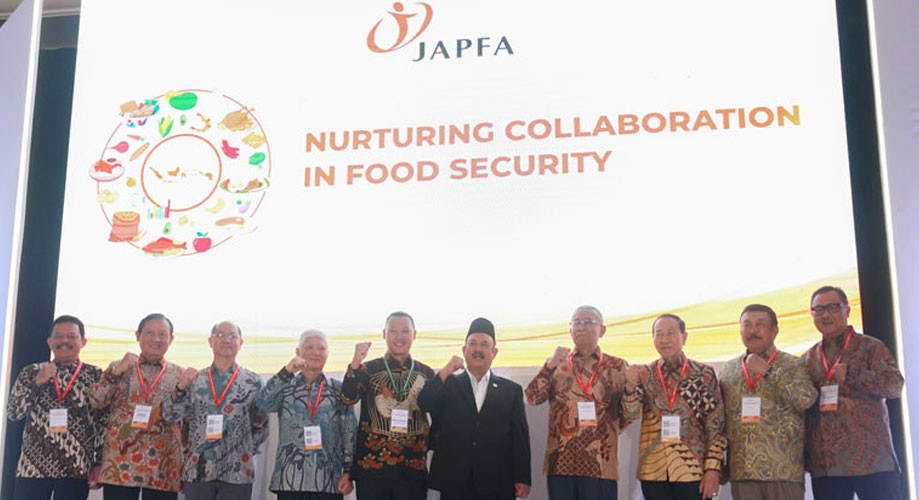
Jakarta, 5 Desember 2024 - Amid increasing global pressures on food security, driven by population growth, climate change, and geopolitical uncertainty, strengthening the food ecosystem is crucial to achieving Indonesia’s long-term food security goals.
Japfa, as a leading producer of animal protein in Asia, reaffirms its commitment to supporting the development of a resilient, sustainable, and inclusive food system. This was the central topic of discussion at the event of JAPFA for Indonesia Emas 2045: Nurturing Collaboration in Food Security.
In his opening speech, Minister of National Development Planning/Head of Bappenas, Rachmat Pambudy, emphasized the importance of collaboration among stakeholders in building a strong food system. “Food transformation is not just the responsibility of the government but also requires active participation from all stakeholders, including the private sector to the public,” said Rachmat.
Rachmat stressed the importance of food transformation to achieve food self-sufficiency, ecological sustainability, and improvements in public nutrition and health. Transforming the food system toward sustainability, resilience, and inclusivity is key to ensuring long-term food security.
"Therefore, I invite all of us to actively participate and collaborate in strengthening and developing a resilient, sovereign, and sustainable food system for both current and future generations," Rachmat explained.
Renaldo Santosa, the Executive Director of Japfa, explained that Japfa has long played a key role in meeting the demand for animal protein in Indonesia and the broader region. "We believe that food security means building a resilient national ecosystem that guarantees access to safe, affordable, and nutritious food for every Indonesian citizen. This is a crucial moment for us to collaborate and realize this vision. By setting clear policies, improving food quality and safety, unlocking the potential of the Blue Economy, and prioritizing the health and nutrition of future generations, we can help realize Indonesia’s vision of food security, food independence, and economic growth," said Renaldo.
Head of the National Nutrition Agency, Dadan Hindayana, expressed that the government must intervene to enhance the growth and development potential of children. "The National Nutrition Agency, as the backbone of the creation of Indonesia’s Golden Generation 2045, supported by other state institutions, is building a digital architecture to control the use of budgets in line with goals and ensure all efforts toward Indonesia Emas 2045 are achieved. Nutritional meal programs are an investment for Indonesia's future," said Dadan.
Gabriella Santosa, Head of Business Development at Japfa, highlighted the importance of collaboration among stakeholders to address malnutrition. “Prioritizing children’s nutrition is both a basic responsibility and a smart economic investment. Every rupiah invested in nutritious food generates significant benefits, making it a top priority for both the public and private sectors. This is a very important moment for all of us, and we appreciate the government’s commitment to addressing the complexities of this program,” said Gabriella Santosa.
She continued, “Recently, Japfa partnered with the University of Indonesia’s Center for Health and Nutrition Studies to assess the nutritional adequacy for children across Indonesia. More than 1,000 children received nutritious meals through three models: Ready to Cook, Ready to Eat, and Self-Managed. Our study analyzed the production process, nutritional fulfillment, distribution effectiveness, and cost. We hope this initiative will provide valuable insights into future stunting reduction efforts, and Japfa will continue to commit to supporting such initiatives and further collaboration with various parties."
Participants engaged in discussions on crucial topics, including key elements in the food security ecosystem, such as the implementation of effective policies, strengthening local production systems, ensuring food quality through strict standards and traceability systems, and the untapped potential of the Blue Economy. They also highlighted the importance of balanced nutrition and the need for collaboration between the public and private sectors in empowering the younger generation to reach their full potential and contribute to Indonesia's prosperity.
Another vital component in building a resilient food ecosystem is maintaining high standards of safety and quality. By producing food locally and adhering to strict standards, Indonesia can not only enhance food security but also increase export potential, providing significant competitive advantages.
Japfa is committed to safety and quality throughout its entire production chain. By integrating feed production, breeding, farming, and processing, Japfa ensures full traceability and control at every stage of the production process. The company adheres to strict certification standards, including NKV, ISO 22000, and HACCP, ensuring that the animal protein produced is not only nutritious but also safe for consumption.
